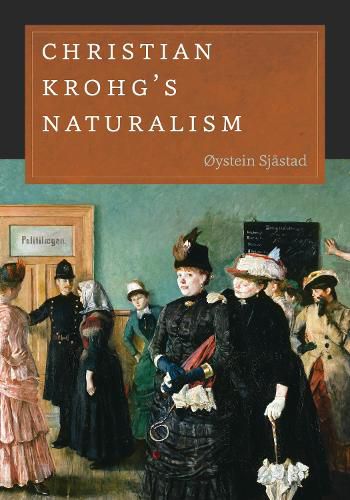Readings Newsletter
Become a Readings Member to make your shopping experience even easier.
Sign in or sign up for free!
You’re not far away from qualifying for FREE standard shipping within Australia
You’ve qualified for FREE standard shipping within Australia
The cart is loading…






The Norwegian painter, novelist, and social critic Christian Krohg (1852-1925) is best known for creating highly political paintings of workers, prostitutes, and Skagen fishermen of the 1880s and for serving as a mentor to Edvard Munch. One of the Nordic countries’ most avant-garde naturalist artists, Krohg was influenced by French thinkers such as Emile Zola, Claude Bernard, and Hippolyte Taine, and he shocked the provincial sensibilities of his time. His work reached beyond the art world when his book Albertine and its related paintings were banned upon publication. Telling the story of a young seamstress who turns to a life of prostitution, it galvanized support for outlawing prostitution in Norway-but Krohg was also punished for the work’s sexual content.
Examining the theories of Krohg and his fellow naturalists and their reception in Scandinavian intellectual circles, Oystein Sjastad places Krohg in an international perspective and reveals his striking contribution to European naturalism. In the process, Christian Krohg’s Naturalism provides an unparalleled account of Krohg’s art.
$9.00 standard shipping within Australia
FREE standard shipping within Australia for orders over $100.00
Express & International shipping calculated at checkout
The Norwegian painter, novelist, and social critic Christian Krohg (1852-1925) is best known for creating highly political paintings of workers, prostitutes, and Skagen fishermen of the 1880s and for serving as a mentor to Edvard Munch. One of the Nordic countries’ most avant-garde naturalist artists, Krohg was influenced by French thinkers such as Emile Zola, Claude Bernard, and Hippolyte Taine, and he shocked the provincial sensibilities of his time. His work reached beyond the art world when his book Albertine and its related paintings were banned upon publication. Telling the story of a young seamstress who turns to a life of prostitution, it galvanized support for outlawing prostitution in Norway-but Krohg was also punished for the work’s sexual content.
Examining the theories of Krohg and his fellow naturalists and their reception in Scandinavian intellectual circles, Oystein Sjastad places Krohg in an international perspective and reveals his striking contribution to European naturalism. In the process, Christian Krohg’s Naturalism provides an unparalleled account of Krohg’s art.